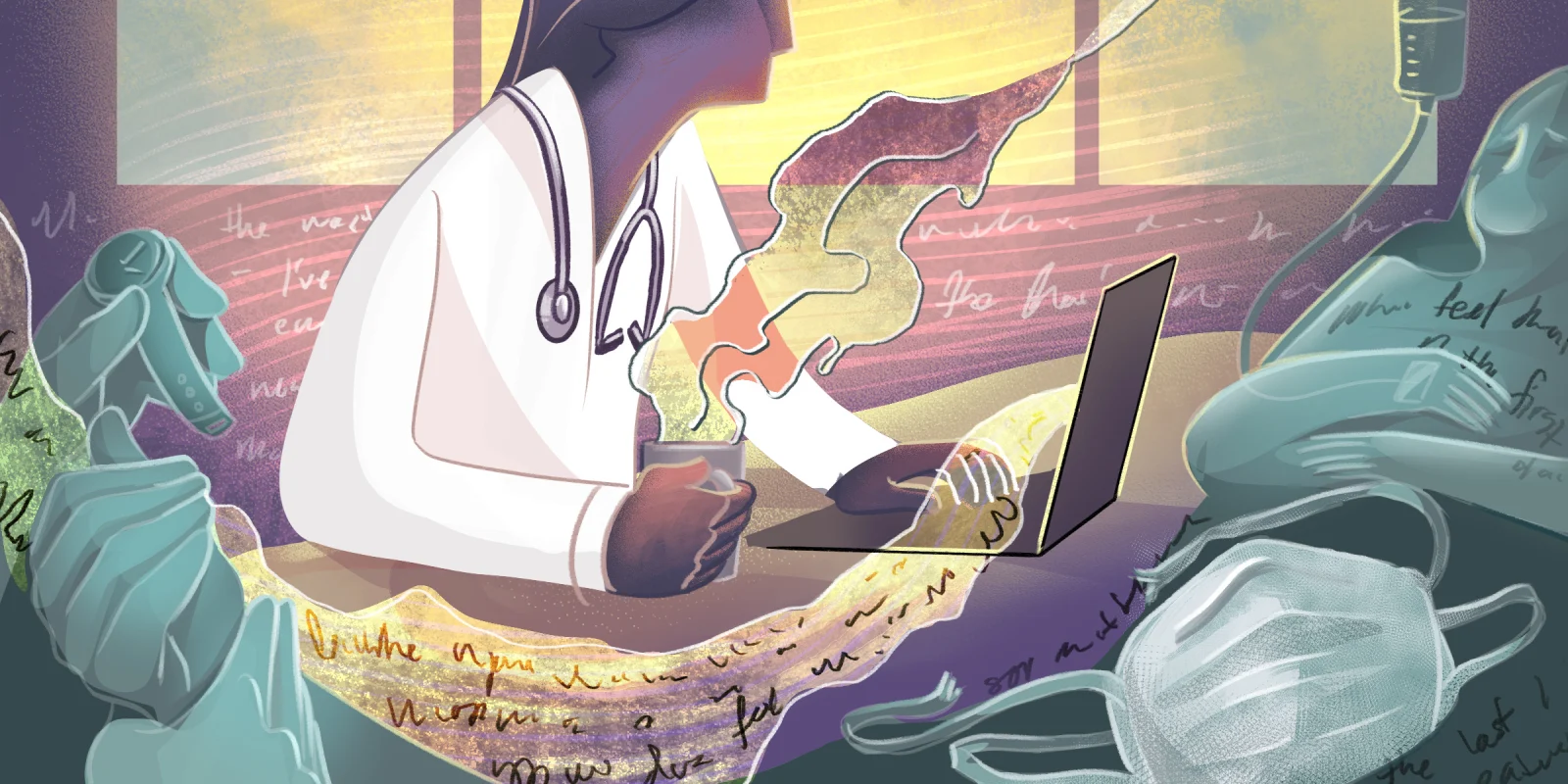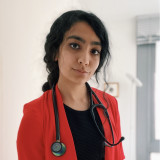
“But surely they offer you therapy or mental health services,” I said to an internal medicine resident and friend working on the front lines in New York City.
“No, not really. Well, there’s one person for our whole group,” they responded.
“And do people feel comfortable going to that person?” I prodded.
“Honestly, even if we had time, it could be seen as weak. Like, you don’t want to be that person that needed it. And we don’t really trust them, either.”
“But you’re a doctor. Surely you know the importance of getting help? Aren’t you … aren’t you watching people die around you every day?” I asked sheepishly.
“I am," they said. "Every day."
“And working around the clock?” I asked.
“More intubations than I can count,” they responded.
“Do you even have time to process things?” I asked.
“It’s complicated,” they responded. “Someday soon I will need to.”
It has been two weeks since this conversation and I am still reeling. And if I am reeling, I cannot imagine the headspace of this brave resident working more than 12 hours a day, five days a week and alternating day and night shifts each week. Irrespective of the type of work, I cannot imagine that sort of work at barely (or possibly less than) the minimum wage salary after four years of intensive study while accruing an average of $200,000 in debt. Now, when you add the day-to-day of a resident physician — likely new to the city or hospital — taking care of the vulnerable, saving lives, and comforting patients during end-of-life care, you get a mentally taxing setup. Then comes a pandemic and a shortage of protective gear, and these demands are taken to the extreme.
Here we are, in 2020, in the midst of a pandemic exposing break after break in our medical system. The burden of the pandemic is shouldered by too many people to count. But one thing is certain: people will continue to need medical attention post COVID-19. Illness, COVID-19 resurgence or not, will persist. And we have managed to grate down on the psyches of some of our youngest and brightest members of society, while expecting them to do it all again. Front-line caregivers are dying. People are scared to go to work. Certainly, it is true that many companies and organizations have come together to provide everything from skin care packages to painted portraits of front-line workers, honoring and affirming their heroic efforts. These perks are a precious reminder of the human desire within those who are not trained to be on the front line to help those who are. These efforts are an important way of helping front-line workers feel seen. But this is not enough.
As a medical student, I feel more sure than ever of the importance of this career choice. I am humbled by the profession during this pandemic, and grateful to be on the path to joining it. Yet I do not want to enter a system that capitalizes on the altruism of my peers. I do not want to enter a field in which grassroots efforts to obtain basic PPE are necessary for my continued safety. While it is clear that, when called upon, we will step up to the plate, even to our own great detriment, this is not what any of us signed up for. Right now, I do not know how to solve the myriad system-level problems, ranging from supply chain logistics to physician wellness, that have become exposed like freshly skinned knees throughout the spring of 2020.
I do know this: we need to talk about it. Siddhartha Mukherjee wrote, “Medicine … begins with storytelling. Patients tell stories to describe illness; doctors tell stories to understand it.” And front-line medical professionals must collectively share what they experienced as a whole. We must piece together these narratives and unearth commonalities to truly know what happened. Just as we must continue rigorous quantitative research on the virus itself, we must also conduct qualitative examination. In the peri-COVID-19 era, it will be critical to cultivate lasting empathy for front-line workers and process the collective trauma that has likewise claimed lives as the virus itself. Only by establishing widespread, lasting awareness will empathy-driven solutions arise and will continued behavior change (e.g., social distancing, wearing face coverings) persist. The act of storytelling comes with added bolstering of mental health; it is a means of coming to terms with a challenging and rapidly changing work environment being directly in harm’s way with inadequate protective equipment, both physical and psychological.
Your stories deserve visibility, and the psychological, societal, and system-level benefits of these narratives are abundantly clear.
Vibhu Krishna is a third-year MD candidate and visual artist at Columbia University in New York City. She is the founder of the digital media campaign @FacesOfTheFrontline on Instagram and www.facesofthefrontline.org, and champions the role of humanism in medicine.
Click here to see more perspectives on COVID-19 from the Doximity network.
Click here for up-to-date news about COVID-19 on Doximity.
Illustration by April Brust






